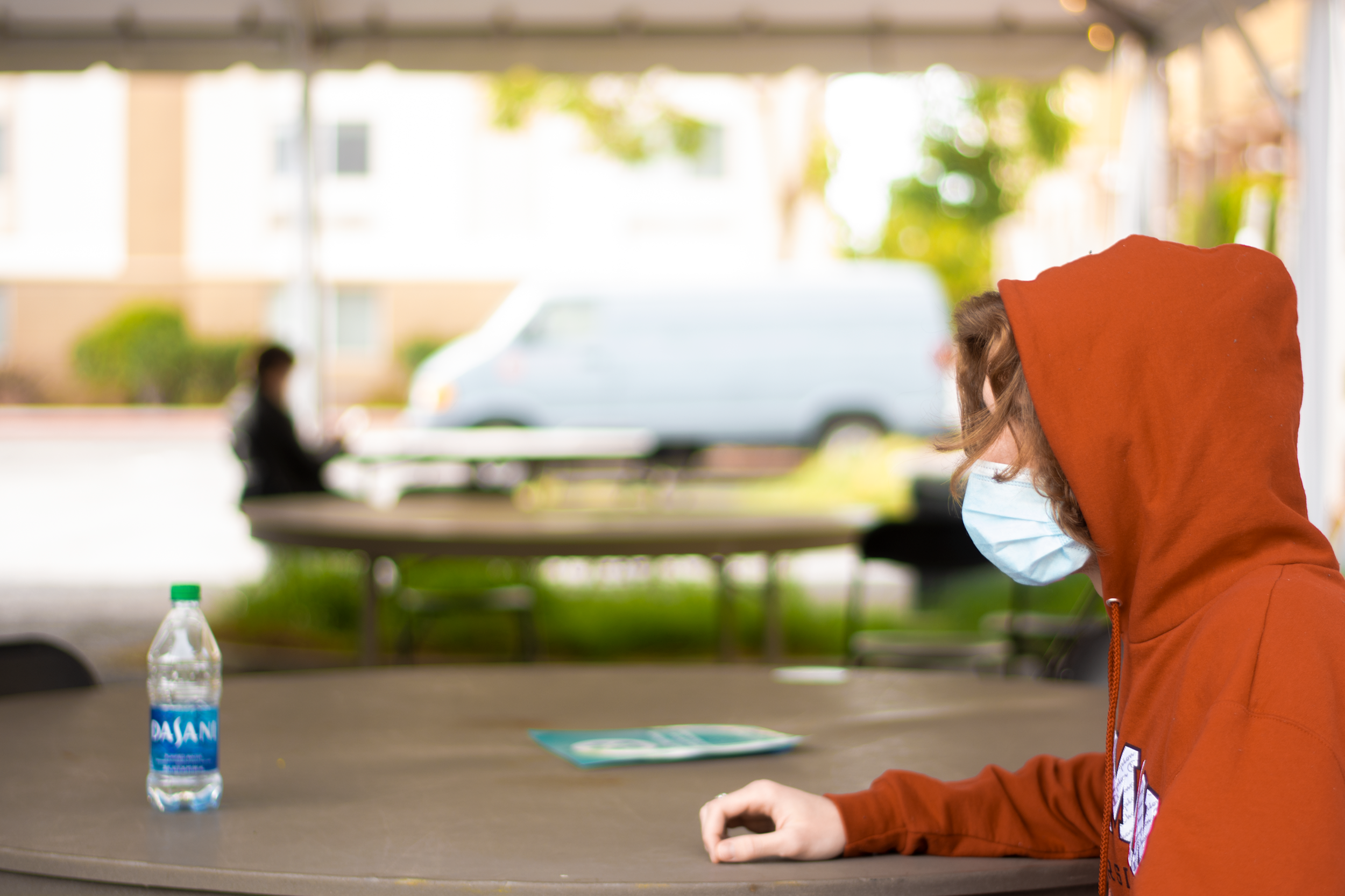Students anxious about socialization post-pandemic
With social interaction in an educational setting taking an entirely virtual format during the pandemic, students reflect on the potential awkwardness of returning to in-person communication. Photo illustration by SAM ANDRUS, Photo Editor
As the possibility of going back to in-person classes manifests into a probable reality, some students voiced concerns to The Panther that the readjustment will not be limited to the shift in setting, but rather in re-learning how to socialize face-to-face.
Marisa Chang, a junior strategic and corporate communication studies major, was sent home March 16 from her spring semester study abroad trip in Prague after only 41 days of arriving. Instead of coming back to the U.S., Chang wanted to visit her dad in Taiwan but decided to stay in Japan after an impromptu layover. However, from March to September, she was stuck in the Japanese countryside under quarantine.
“I did forget how to socialize,” Chang said. “My social clock would run out so quickly and I just wanted to go home and have time for myself. But gradually, I slowly learned how to communicate with people and try to word vomit as minimally as possible.”
After moving to Hakuba, a village just outside the bustling city of Nagano, Japan, Chang began to bartend at one of the popular bars in the area. After months in isolation and an increased sense of detachment from her fellow Chapman students, Chang said that since September 2020, she’s become the most extroverted she’s ever been. However, she expects global social customs to be temporarily altered.
“In the future, you're going to have to ask for consent when you want a hug or a handshake,” Chang said. “I think a lot of customs will change like kissing on the cheek ... In Japan, we bow, so maybe that will be more normalized.”
Caitlin Neuville, a senior communication studies and broadcast journalism and documentary double major, uprooted all her plans during 2020 to move to Florida after the pandemic started. As her family continued living in Hong Kong, she moved to Florida to take care of her younger sister from March until August.
Neuville has kept a close circle of friends to spend time with during the past year, and with a mix of quarantine and online school, she craves to have social interaction again. She proclaimed herself as the type of student to always start conversations in class, and as such, lamented the decreased quality of socialization in classes from what she’s used to.
“People (won’t be able to) hide behind their cameras and their microphone, so I think everybody will be overwhelmed and very self-conscious in the way that they present themselves,” Neuville said of a return to in-person learning.
A reintroduction into the normally social in-class environment will be necessary for making sure students' first few weeks are as minimally awkward as possible. After a year of Zoom classes with a lack of social interaction around campus or walking to and from classes, Neuville assumes that “icebreaker” games will be very prevalent in class for the first few weeks.
“Group projects and group work has been so hard to implement over Zoom,” said Marina Kahana, a Chapman psychology professor. “We will really have to work on redeveloping these in-person collaboration skills and how to be together and collaborate in a shared space.”
While there will be some students who want to make up for lost time and accelerate the return to normalcy, there will also be cautious students who may not feel completely comfortable socializing in the same capacity as they did before the pandemic —, maybe for many years to come. For instance, traveling, being in large crowds and even spending time with people outside of one’s immediate social circle may take a readjusting period depending on their lived experiences during the pandemic.
“There will be people who are going to be very anxious about being in a crowded classroom or walking up a staircase surrounded by students,” Kahana said. “A lot of that will be based on their personal experience with COVID-19.”

